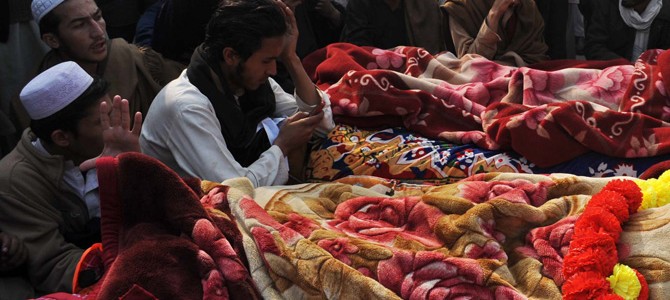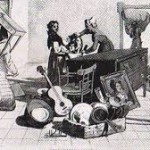War narrative/ About the freedom of speech
The term war narrative has become an official definition of the Pakistani government. The Taliban national (PTT) and national have adapted their communication tools, grabbing the instruments offered by new media and so it is necessary to adapt and respond, even at the institutional level. So, after the attack on the school in Peshawar, which made 142 deaths, of which more than 130 boys and girls, the Standing Committee on Information, Broadcasting & National Heritage met in late December and presented to representatives of media and its journalists the “Proposals to strengthen Media’s Role in Combatting terrorism.”.
Over 20 pages that resemble insiders what are the laws and regulations relating to the rights and duties of information, and also comments and suggestions to follow when news stories about the bloody events must be reported, and also terrorist propaganda and kidnappings. The committee wishes to point out in the introduction that Pakistan is one of the Asian countries where freedom of information enjoys wide margins: that is true, as television and newspapers reported daily critical comments, as well as the work of the government and the army, which now has special powers in the name of fighting terrorism, as the referral to military courts for cases of terrorism, and the restoration of the death penalty. Here you do not mess around. The commission admits that the country is “closer to the time of war than to those of peace” and that the state, the army and civil society are united in the fight against terrorism. It is also true that the Pakistan Federation of Journalists (PFJ) recalled that in 2014 the country has seen die eight reporters and six operators, the highest number in the world followed only by Syria, that “journalists live under constant threat of killings, harassment and other violence by state and non-actors. The problem is not only the safety but also unemployment and unpaid salary”. It ‘s also true that the Senate is still discussing whether to reopen the access to Youtube, banned for blasphemy more than two years ago (daily obstacle bypassed by those who have a little confidence with the computer). it’s true that the International New York Times, which comes out every day attached to the Express Tribune, sometimes shows blank pages when there are explicit comments to the country or picture of two ladies in costume bath sunbathing.
In any case, we are in war times, and the commission states that when it talking about counterterrorism narrative, media, government and parliament should be ‘on one page’ in the application of existing laws and those who will come “including the” counter terrorism narrative policy guidelines “, i.e. the development of specific guidelines. Laws concerning the media and freedom of expression are numerous, just remember the article 19 of the Constitution which states: Every citizen shall have freedom of speech and expression, and there will be freedom of the press, subject to any reasonable restrictions imposed by law in the interest of the glory of Islam or the integrity, security or defense of Pakistan(…)”. It is so consistent that what happened in Paris has spoken in abundance but no one would dream to publish in any muslim country the cover of Charlie Hebdo, in the name of freedom of expression.
If the control and compliance with the rules can be relatively easy to press, radio and television, things get complicated when dealing with new media, so that the document of the Committee devotes less than a page to that, not because there is not much to say or recommend, but because the network is an octopus difficult to stem. So true that even in Pakistan on Facebook you can find everything and even official pages, showed photos of bloody criminals killed or abducted children and returned to their families, in contravention to any recommendation about. Sure, as for the intelligence services of each country, which filters and controls are always active, but the daily browsing is an ocean hardly adjustable, just the example of the videos after the massacre of Paris that continue to appear daily.
The Commission is obviously aware of it: “We can not simply smoke them out (…) There must be a strategy of social media. The flow of information has been moved, so the strategy must adjust to this. Using the example of ISIS there must be a law that regulates social media”, primarily by ensuring that the streets of incitement to violence, abuse and other dangerous material is put under tight observation. The approach that leads terrorists to recruit others to be restricted and messages made out. If we do not care today safeguard tomorrow we will face more serious problems, they conclude.
In short, to learn from the enemy seems to be the strategy of today for tomorrow.








